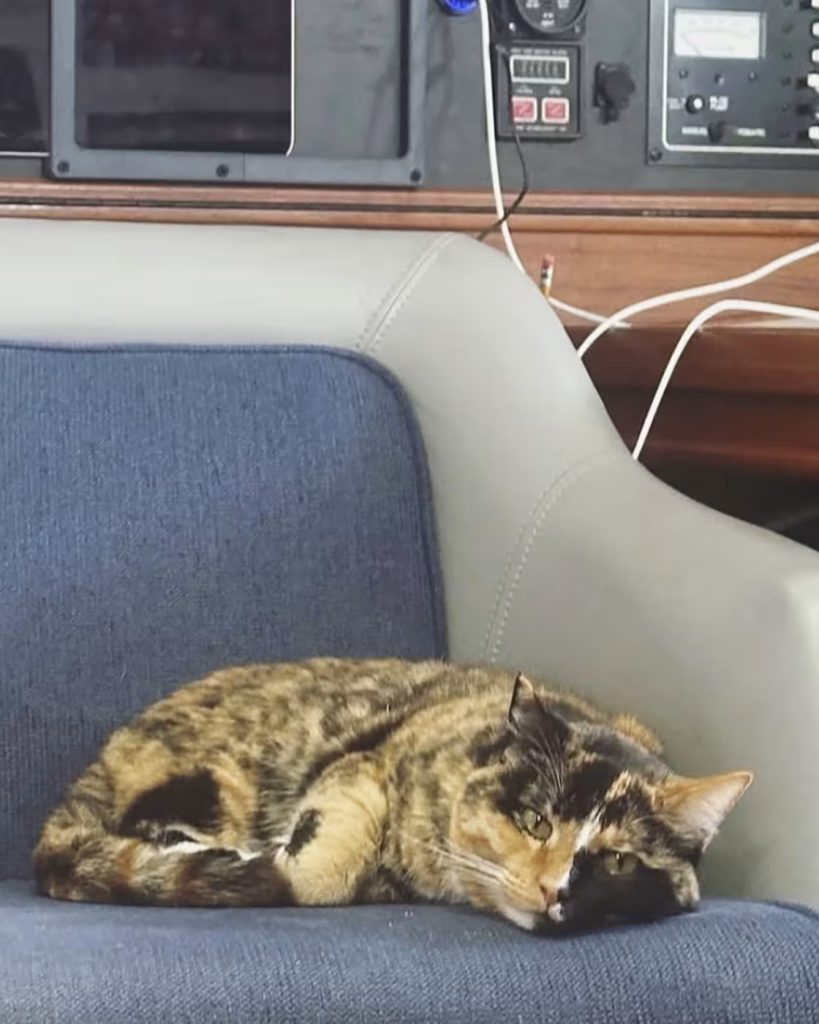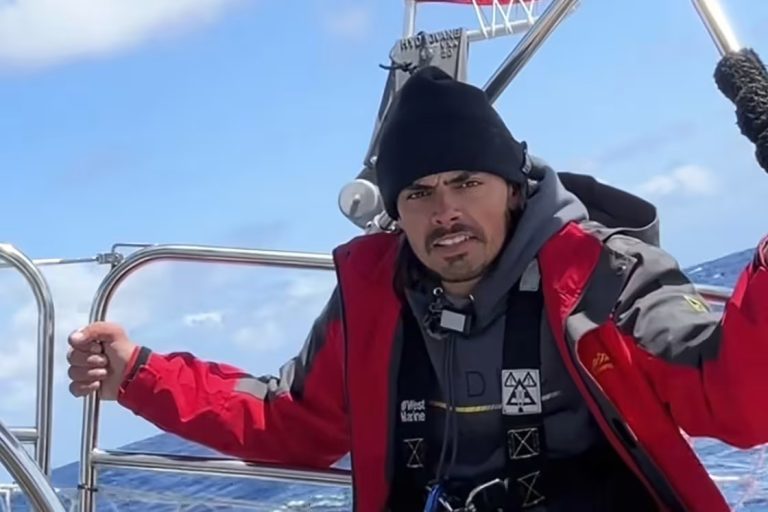HONOLULU — Halfway through a solo voyage across the Pacific with only his cat, Phoenix, for company, Oliver Widger paused to reflect on why his story has captured the attention of over a million followers on TikTok and Instagram.
Widger, 29, left behind a stable office job to sail from Oregon to Hawaii, and his journey has since turned into an online sensation.
“The world’s kind of a mess, and I don’t think I’m the only one who felt trapped by work,” Widger said in a Zoom interview with The Associated Press on Wednesday. “You could be earning $150,000 a year and still feel like you’re barely scraping by. People are burnt out. They want something different.”
His story of leaving the rat race has resonated with many who dream of doing the same. Widger is now part of a growing community of adventurers seeking freedom on the open sea.
A life-changing diagnosis four years ago — a condition that posed a risk of paralysis — forced Widger to confront how unhappy he was with his life as a tire company manager. The job demanded he dress sharply and stay clean-shaven, but it didn’t fulfill him.
After reading about sailors making the journey from California to Hawaii, he knew he had found his calling.
Without a clear plan, with no savings and $10,000 in debt, he walked away from his job.
“The only thing I was sure of,” he said, “was that I was buying a sailboat. I was going to sail the world.”
To fund his dream of sailing around the world, Oliver Widger cashed out his retirement savings, taught himself the basics of sailing primarily through YouTube, and left Portland for the Oregon coast. There, he spent several months overhauling the $50,000 sailboat he had purchased.
Now at sea, Widger is using social media as a lifeline—not just for support, but as a way to document and finance his journey. Since departing in April, his “Sailing with Phoenix” accounts have drawn in a large audience eager to follow his adventures with his cat, Phoenix. His videos capture everything from turbulent weather and seasickness to serene sunsets, makeshift repairs, and his candid thoughts on life aboard a boat.
While speaking with The Associated Press, Widger was aboard his vessel, swaying with the waves as a netted bag full of bottled water and snacks swung above his head.
He recalled some of the standout moments so far: watching dolphins race alongside his boat, discovering flying fish on the deck, and enduring long stretches without spotting a single bird. Sleep can be elusive when the boat groans and rocks through the night, and cooking is a challenge when trying to balance a boiling pot in rough waters while relying on military-style MREs for meals.
The journey hasn’t been without peril. A failed rudder once left the boat leaning dangerously in the surf for three hours as he made emergency repairs. In another incident, he became stuck inside the engine compartment and had to force his way out using a wrench.
Though still relatively new to sailing, Widger has taken several precautions. He carries safety gear including a satellite phone and an Emergency Position Indicating Radio Beacon (EPIRB), which allows rescuers to pinpoint his location if needed.
Lt. Cmdr. Jesse Harms of the U.S. Coast Guard in Hawaii said that while he hasn’t followed Widger’s trip closely, he was glad to hear the sailor had an EPIRB aboard. In vast and unpredictable waters like the Pacific, Harms emphasized, that device can be vital in an emergency.
He also noted that Widger’s high-profile voyage is a valuable chance to spread awareness about maritime safety. From always wearing a life jacket when on deck to checking weather updates and properly registering emergency gear, Harms said these precautions are critical—especially for those inspired by Widger’s story to begin their own sailing adventures.
“That’s the kind of thing anyone considering a similar journey needs to take seriously,” Harms said.

As Widger approaches what will likely be his landing point in Honolulu, he’s taking steps to ensure his cat, Phoenix, won’t have to undergo Hawaii’s strict animal quarantine process. He plans to have a mobile veterinarian certify Phoenix’s health upon arrival, he said.
Though he didn’t initially know about the serious threat cat feces pose to Hawaii’s endangered monk seals, Widger has been storing all waste—including used kitty litter—onboard. While he technically has the legal right to dispose of it at sea, witnessing the sheer amount of plastic pollution in the ocean has strengthened his resolve to avoid contributing to it.
Along with handling the day-to-day demands of life at sea, Widger is also managing the unexpected challenges of internet fame. From the middle of the Pacific, he continues to produce content for his growing fanbase and is even fielding decisions about merchandise his followers are eager to purchase.
He credits the health scare with his neck—a diagnosis that changed everything—for pushing him to leave his old life behind.
“It flipped my world upside down and completely changed how I see things,” he said. Now, Widger hopes his story can serve as a reminder that change is possible for anyone feeling stuck.
“Every single thing I’ve done felt impossible at first,” he said. “Sailing around the world sounds crazy—but whatever your dream is, just go. Just do it.”

